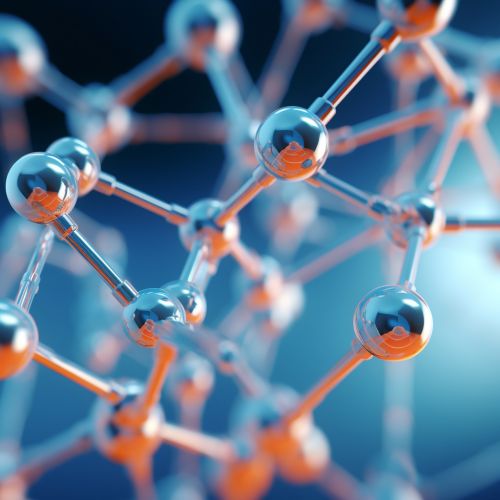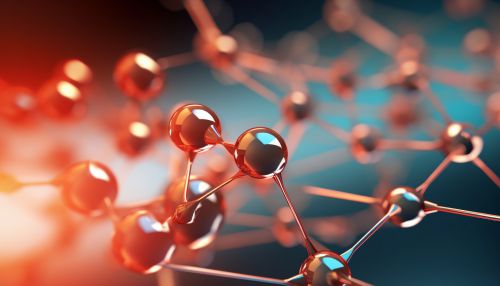Bioconjugates
Introduction
Bioconjugates are hybrid molecules that are formed by the combination of two or more molecules, usually a protein and another molecule, which can be another protein, a peptide, a DNA molecule, or a small molecule. These conjugates are formed through a chemical process known as bioconjugation, which involves the use of specific chemical reactions to link the molecules together. Bioconjugates have a wide range of applications in various fields such as biotechnology, medicine, and biochemistry.


Bioconjugation
Bioconjugation is the chemical process that is used to form bioconjugates. This process involves the use of specific chemical reactions to link two or more molecules together. The molecules that are linked together in this process are usually proteins, peptides, DNA molecules, or small molecules. The resulting bioconjugates are hybrid molecules that have the properties of both the original molecules. This process is used in various fields such as biotechnology, medicine, and biochemistry for various applications.
Types of Bioconjugates
There are various types of bioconjugates, depending on the types of molecules that are linked together. Some of the most common types of bioconjugates include:
Protein-Protein Conjugates
Protein-protein conjugates are formed by linking two or more proteins together. These conjugates are used in various applications such as the development of therapeutic antibodies and the study of protein-protein interactions.
Protein-Peptide Conjugates
Protein-peptide conjugates are formed by linking a protein and a peptide together. These conjugates are used in various applications such as the development of peptide vaccines and the study of protein-peptide interactions.
Protein-DNA Conjugates
Protein-DNA conjugates are formed by linking a protein and a DNA molecule together. These conjugates are used in various applications such as the development of DNA vaccines and the study of protein-DNA interactions.
Protein-Small Molecule Conjugates
Protein-small molecule conjugates are formed by linking a protein and a small molecule together. These conjugates are used in various applications such as the development of small molecule drugs and the study of protein-small molecule interactions.
Applications of Bioconjugates
Bioconjugates have a wide range of applications in various fields such as biotechnology, medicine, and biochemistry. Some of the most common applications of bioconjugates include:
Therapeutic Applications
Bioconjugates are used in the development of various therapeutic agents such as therapeutic antibodies, peptide vaccines, DNA vaccines, and small molecule drugs. These therapeutic agents are used in the treatment of various diseases such as cancer, infectious diseases, and autoimmune diseases.
Diagnostic Applications
Bioconjugates are used in the development of various diagnostic tools such as diagnostic antibodies, diagnostic peptides, diagnostic DNA molecules, and diagnostic small molecules. These diagnostic tools are used in the diagnosis of various diseases such as cancer, infectious diseases, and autoimmune diseases.
Research Applications
Bioconjugates are used in various research applications such as the study of protein-protein interactions, protein-peptide interactions, protein-DNA interactions, and protein-small molecule interactions. These studies are important for understanding the molecular mechanisms of various biological processes and diseases.
